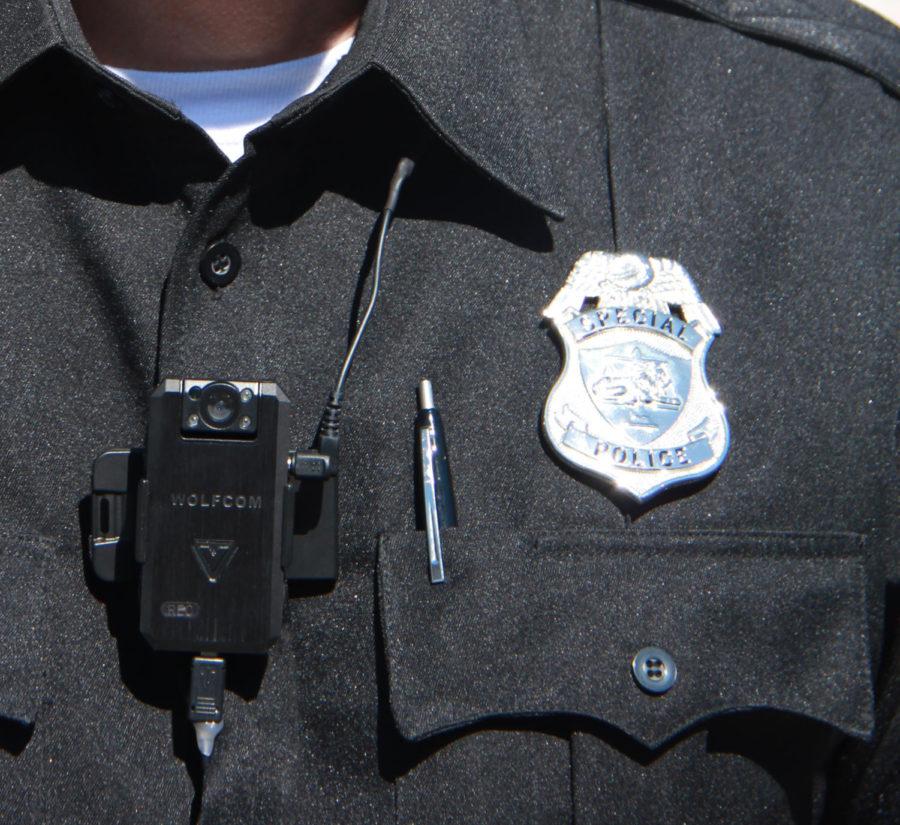Ames law enforcement weighs in on body cameras
The Ames Police Department and ISU Police are both researching the feasibility of equipping officers with body cameras.
May 28, 2015
In the wake of national concern over misconduct in the police force, the Ames and Iowa State police departments are researching the possibility of equipping their own officers with body-mounted cameras.
Cmdr. Jason Tuttle of the Ames Police Department says that a summer committee is currently researching the possibility of Ames Officers using body cameras in order to improve interactions with the public. He said he is hopeful about their prospects.
“What we’re seeing around the country and from studies in other departments is that when body cameras are used, that is decreasing complaints against officers,” Tuttle said. “It’s decreasing use of force incidents with officers, and it’s also changing the behavior of both the officer and citizens when they have those encounters. I think there’s some very positive things that can come out of these.”
ISU Police is also conducting research to see if the cameras would be a good fit. Patrol Captain Aaron Delaschmutt was equally positive about the idea of the cameras.
“More times than not they help us solve crimes, they help us resolve situations, and they help the officer,” Delaschmutt said.
While the ISU Police are keeping their eyes on the issue, they don’t want to be too hasty in making any decisions.
“One thing that we always emphasize is that we’re not going to get this just because it’s the newest technology or fad, or because everyone else is doing it,” Delaschmutt said. “We need to make sure that these cameras protect our community and our police officers, while also respecting their rights to privacy.”
The issue of privacy is a concern shared by Tuttle and the Ames Police Department.
“If I come to your house and you’re a victim of some type of sensitive crime like a sexual assault or domestic assault, are you going to want me video taping you inside of your residence while I’m asking you very sensitive questions?” Delaschmutt asked.
The hefty price tag to implement a body camera program is another concern for police. Delaschmutt estimated the average cost of a camera at $500, a price that could equal $17,000 to $20,000 in costs for the ISU police department as a whole. On top of that, the cameras create a massive need for data storage that could be even more expensive.
Tuttle said the additional cost of storing digital information was also a concern.
“What do we do with all this video we’re downloading every day?” Tuttle asked. “Where do we keep it? How much is it going to cost to store that data?”
Both departments remain optimistic about the cameras, but understand that video footage is not always perfect evidence. Tuttle pointed out the importance of educating the public on the limited scope of the lens, which does not always tell the whole story.
“Video is a tool,” he said. “It is one piece of the puzzle. The video cameras are not going to show the officer’s whole perspective at a scene. The video can’t hear and feel what is going on.”

















